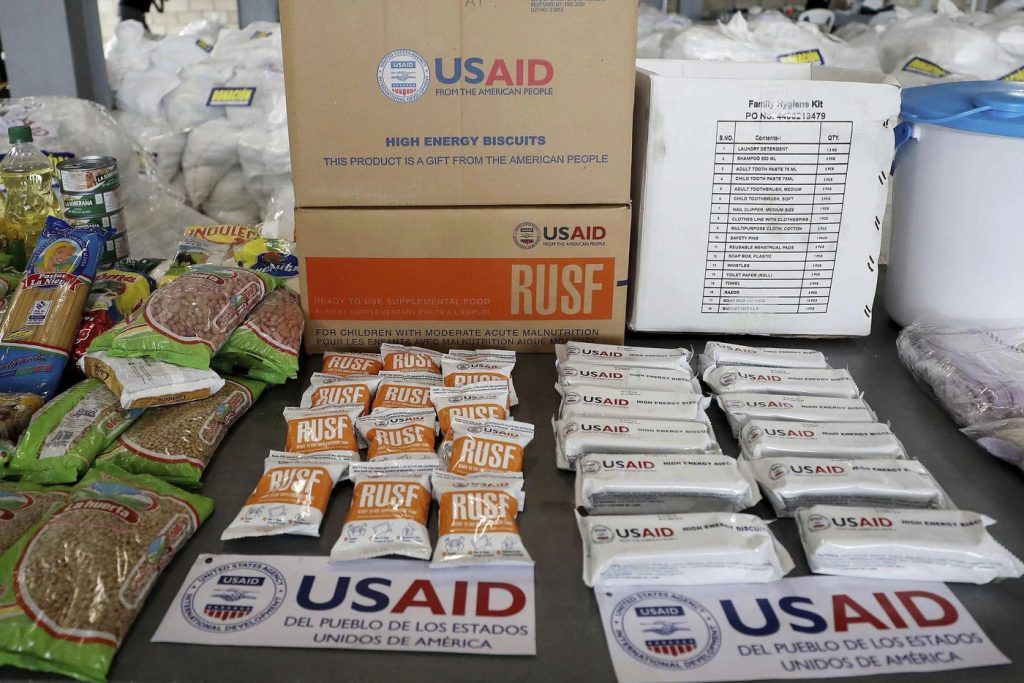WASHINGTON – Recent changes initiated by the Trump administration have significantly altered the operational landscape of the U.S. Agency for International Development (USAID), with numerous senior officials placed on leave and thousands of contractors laid off. A broad freeze on billions of dollars in foreign assistance has also been implemented since January 20, raising serious concerns amongst aid organizations and advocates.
On a recent Friday, Democratic senators voiced their concerns regarding potential plans by the Trump administration to eliminate USAID as an independent agency. They highlighted that such an action would lack legal authority and emphasized the importance of the agency in providing vital humanitarian aid.
Senator Chris Murphy and several other Democratic senators on the Senate Foreign Relations Committee responded vigorously to these changes, arguing that the elimination of USAID would undermine essential support programs globally. The freeze on aid funding has created a climate of uncertainty, leaving many organizations wondering whether they can continue critical life-saving initiatives, including nutritional support for malnourished children.
Current and former officials from USAID and the State Department disclose that staff members were encouraged to submit requests to exempt specific programs from the aid freeze. However, the situation escalated when at least 56 senior career USAID personnel were abruptly placed on administrative leave just days after the freeze was officially announced.
Reports indicate that many of those placed on leave included lawyers involved in processing waiver requests for programs deemed essential for humanitarian relief. Furthermore, some individuals associated with diversity and inclusion initiatives found themselves targeted amidst the administration's push to reshape USAID.
Jason Gray, the acting administrator of USAID, informed staff in an internal memo that certain actions within the agency appeared to be efforts to bypass presidential directives. Consequently, several employees were placed on administrative leave with full pay while the agency conducts a thorough investigation into these actions.
As staffing changes swept through USAID, contractors—who account for about half of the agency’s humanitarian workforce—were unexpectedly laid off. These contractors supported essential services such as administrative assistance, travel support, and data analysis. The abruptness of their removal has led to significant disruptions in the agency’s operations.
The State Department had recently issued guidelines for implementing Trump's executive order which effectively suspended foreign assistance for a duration of 90 days. Initially, the guidelines exempted only military aid to Israel and Egypt, along with emergency food programs. However, provisions were also made for waivers for programs that met the administration's standards for "America First."
On February 1, the new Secretary of State, Marco Rubio, broadened the scope of waivers to include various life-saving assistance programs, such as medical services and food. Rubio indicated the intention to ensure that critical services continued during the 90-day review period without endangering lives.
The State Department claims that numerous waivers have been approved since the freeze began, although many requests were returned for lacking sufficient detail. The agency has indicated that a substantial amount of funding has been withheld from programs that do not align with the current administration’s directives. This raises alarms as aid organizations report that the freeze has negatively impacted access to essential medical supplies and humanitarian assistance globally, potentially endangering countless lives.
The staffing turmoil and the funding freeze at USAID underscore the challenges facing the agency in delivering crucial assistance amid shifting political priorities. With the administration's review process still ongoing and uncertainty surrounding which programs may receive continued funding, the humanitarian landscape remains precarious.










